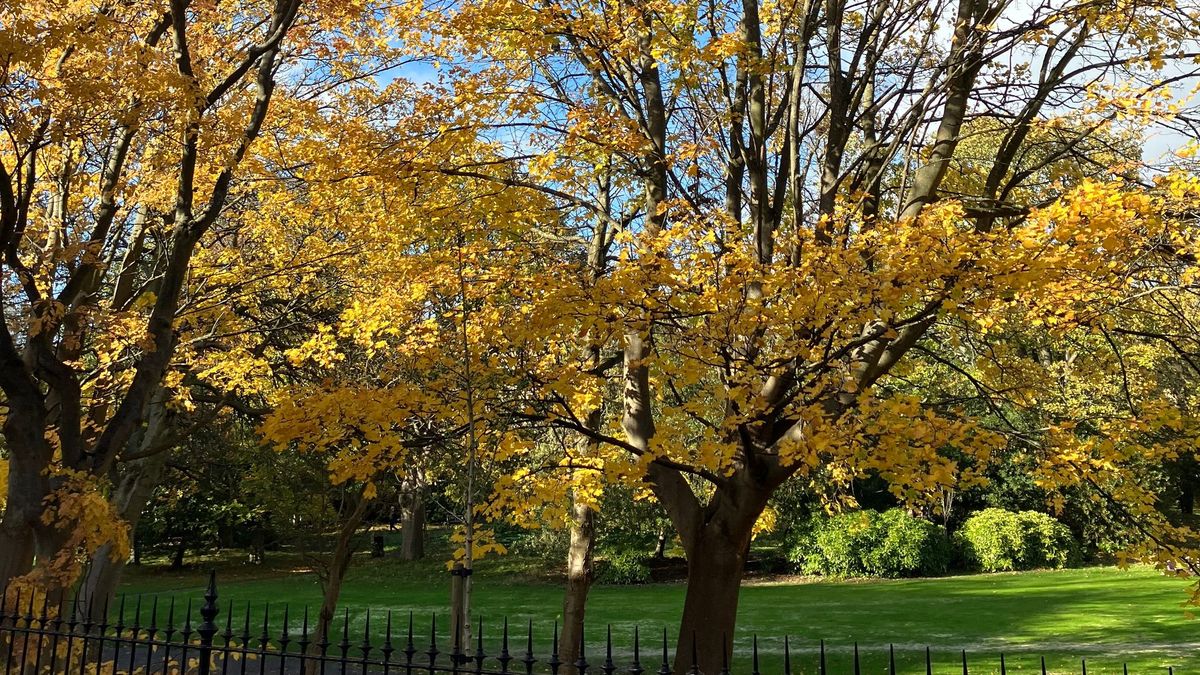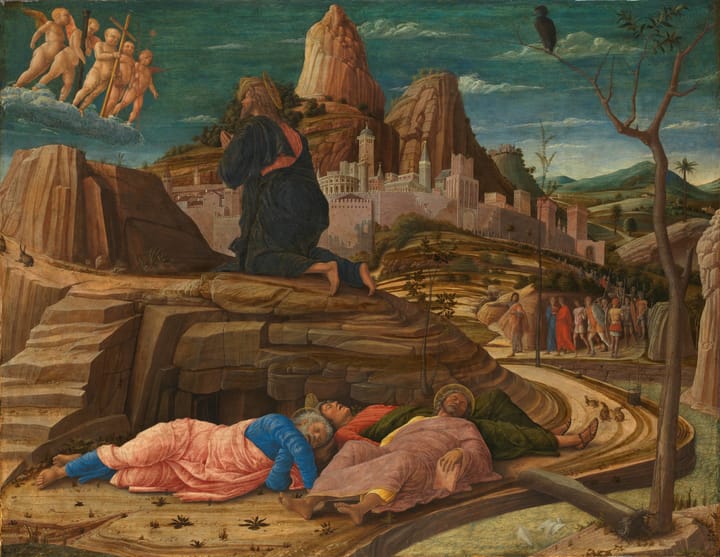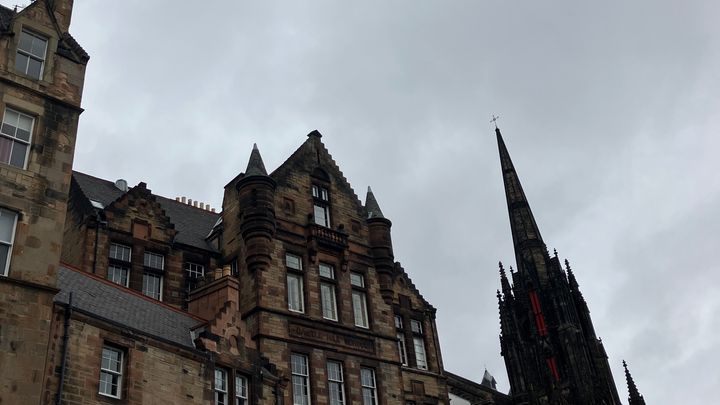Transplantation – Autumn Reflections

Be thy heart a well of love, my child,
Flowing, and free, and sure,
For a cistern of love, though undefiled,
Keeps not the spirit pure.
– George MacDonald, Phantastes
I have been transplanted about three months now, from South Africa to Scotland. Upside down, where winter is summer and summer winter. These months have been formative, invigorating. The push and pull of the forces one faces in a new place and in a profound life change, can cause life to flow again in limbs of the soul that have fallen asleep, as when one sits on one’s leg too long. How reassuring are those pins and needles signalling the return of feeling, despite some pain, once again.
I ever see so much of humanity reflected in trees. And here at the end of autumn I see how they’ve shed their leaves, they seem so generous, casting all around us their many colours, shining in the dreary grey. It’s at the moment of transition that life manifests itself most clearly. Look at how the dawn bleeds into day, look at how the evening floods the sky with rushing and roving yellows and reds before the light grows cold and fades away. The most intense reassurance of day comes here at its waning. These are the signs given for recollection during the dead of night, and mirrors the sun’s glorious return at dawn.
I think of the way trees grow as analogous to how we do. And how we learn to stand on two feet as analogous to how we grow in personhood. There is in these things a vital negotiation, a sort of conversation with the world around us, dynamic and alive with meaning. Trees grow through experience, not analysis, not blueprint, but in a sort of dance with the wind, the cold and the layering winters and summers. Winter clothes the tree in resilience, training – with its harsh, invisible hand – its roots to be strong, to dig deep for anchorage. In that swaying back and forth, their masts rising in defiance of the vast bewildering world, the push and pull, we all have to enter into the violence of becoming.
And we grow, as the summers and winters come and go, and the rhythm, the constant throbbing rhythm in veins and footfalls. I think of the coming into manhood, the wild and the tame and learning about affection deeply felt, forged and forever held, of losing and finding the wonder of a child, and that love, that singular kind of love that lets you die to the tyranny of self.
I have now traveled far from home in more ways than one. There was a time when I feared venturing out, feared losing the path. As if staying home could preserve me from danger – instead it would keep me from living. There was a time I still feared losing trust in myself - what kind of trust is trust in oneself? O, ill-founded foundation in the sand.
I read Chesterton’s Manalive and a cracking dyke broke when I saw a picture of a man fully alive who did not attain purity by remaining in safety. Here was a man who lived dangerously, who took risks, and yet proved innocent! And I saw in that man the picture of a Prince who leaves a throne, condescending to a seat of hay in a stable – O Christ! How reckless! To have your perfection questioned, to trade the eternal for the specific, to allow yourself to be defined by space and time. How daring! And daft? — And I, I tried to inhabit unblemished, faultless eternity. Blasphemy!
My fear of mistakes are a value only in the negative. But righteousness, charity, exist in the positive, in the doing, not in mere avoidance. Acting is a risky business and involves much stumbling and stammering. But no child learns speech by keeping silent! And righteousness takes practice.
I have been transplanted, and yet I grow from the same root and in the same soil of my boyhood – I cannot, in this sense, be transplanted. A friend of mine told me about a reading of Psalm 1, where, instead of "planted", the adjective is rendered as “transplanted” – “He will be like a tree transplanted to streams of water”. This is a hopeful reading – for “planted” implies a finality, a determinism in our origins, and for those who have at times felt their roots withering in poor soil, cannot conceive of themselves as having been planted by the waterside. They are forever exiles, not blessed ones – they have drunk from the Devil’s well. The Psalm, for all its beauty, excludes them. Blessedness is for the one who has remained perfectly in his place by The River. Who can claim such faithfulness? Indeed, in Christ, we are transplanted to where there is life.
But I think there is hope yet in the conventional reading of the Psalm as “planted”. What if there is a river whose invisible source sends forth its estuaries to all the ends of the earth? What if that river can spring up in the wilderness of our exiled existence, so far from the garden? In George MacDonald’s Phantastes, the protagonist is itinerant. A juvenile wandering far into the unknown of fairyland. But I see that at the times when he is most like the wandering soul, when he walks into the deepest regions of the wilderness, he doesn’t really seem to be moving at all, because he makes no progress. He has wandered into a directionless existence where progress is an illusion, is indeed a mirage, conjured up by the cunning of the desert. He is, in truth, stagnant.
But rivers in the novel enact the sudden appearance of grace in this wilderness, in the midst of this sterile stagnation. While Anodos was in his state of stagnation, a little streamlet appeared – thus the narrative is moved. The narrator tells us that Anodos saw a small vein of water, “bursting from the heart of a sun-heated rock, flowing Southward”, and that he followed it, until, the stream steadily grew into a river, and its banks are eventually lined with lush vegetation. "At length, in a nook of the river, gloomy with the weight of overhanging foliage, and still and deep as a soul in which the torrent eddies of pain have hollowed a great gulf, and then, subsiding in violence, have left it full of a motionless, fathomless sorrow – I saw a little boat lying." (Phantastes, 64-66)
What if the river of Psalm 1 is like MacDonald’s river? What if this river is not one that we were meant to have found and planted ourselves beside from our youth, and failing to do so, must forever look for, thirst for, with hopeless longing? What if that river is like glad tidings that search out and find us, where we are, and nourishes our roots that have dug themselves into this arid soil, sending sap back into our "rattling twigs and sprays in winter" (Coleridge), into our deadened limbs? There is indeed a river that makes glad the people of God, and the one who has tasted its waters knows that though it may run at times in subterranean regions, too deep for sight to scan, it springs up when one least expects it – outrushing the wandering of man (to paraphrase Chesterton) – and always finds us, finally, right where we are.
Notes
- I've made a rather eclectic playlist that I think captures some of the atmosphere of Phantastes. Listen here
- I have written another piece on Phantastes for "The Big Picture". Read it here
- In the piece, I quote from Coleridge's Bibliographia Literaria. Coleridge uses the phrase "rattling twigs in winter" to refer to the sterility of enlightenment thought. I'm appropriating it to refer to spiritual numbness and death more broadly.
- I also paraphrase Chesterton's Poem "Gloria in Profundis", one of my favourites.


